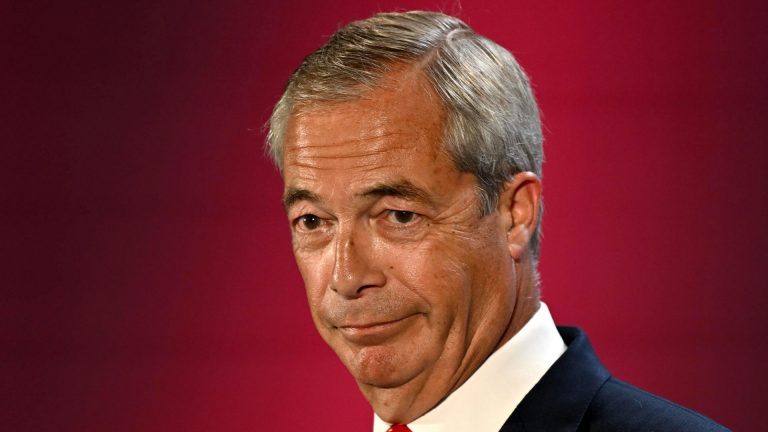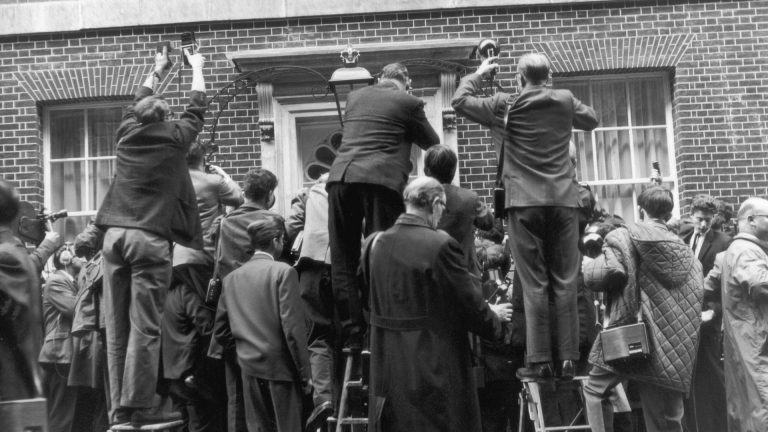The first thing to note about 75 Brexit Benefits, a new book that promises to reveal all the brilliant stuff that’s happened to booming Britain since we left the European Union, is that it is written under a nom de plume. Perhaps this is designed to stop the author’s friends and family laughing at him or her.
The original Gully Foyle is the hero of The Stars My Destination, a 1956 science fiction novel by American writer Alfred Bester. It was a reworking of The Count of Monte Cristo, in which the hero can tele-transport himself further than others because he has “faith”.
This is surely a metaphor for Brexit – doubtless our lack of faith is the only reason why I, and New World readers think it has been an utter disaster rather than something worth lauding in a book. Well, our lack of faith and all the evidence.
The second notable thing about the book is that it has a foreword written by Sir John Redwood (“at last after nine years of propaganda from anti-Brexit spinners, here are the facts”). The third is that it is published by the Bruges Group, an anti-EU think tank established in 1989.
To be brutally honest, those three facts tell you pretty much all you need to know about the book. I would have used a pseudonym if I had written it.
Redwood, one of the original “swivel-eyed loons”, is exactly the right man to support such a pile of drivel. His foreword barely mentions the book at all and is far more about how he was always right, so there. Meanwhile, the Bruges Group, whose mission statement is “Contributions are chosen on the basis of their intellectual rigour, and their ability to open up avenues of debate”, needs a new mission statement.
I do not have the time or space to go through all 75 so-called benefits listed by gullible Gully, but as the book is divided into seven sections we may as well do the same.
The first section has 13 reasons why leaving the EU has saved us money through membership costs and other fees. Yet strangely, most of this section is about no such thing, counting, as it does, “cheaper bananas” and less foil covering the corks of champagne bottles – yes seriously – as “benefits” under this heading.
The second section of “benefits” covers farming, fishing and the environment, yet since the author admits that the Brexit reset with the EU has probably ended our divergence on farming, food and fishing, this whole section of the book is already out of date. So that is another 10 “benefits” that we can’t really count.
Section three is all about how Brexit means better trade. This ignores the well-documented evidence that Brexit has damaged the UK’s trade substantially. It counts as a benefit the 10% tariffs on all our exports to the USA introduced by Donald Trump! It hails new, longer lorries on British roads as a major win. The author might like to chat to the road haulage industry about the damage Brexit has done to its business in Europe, or to our exporters, who would have a few sharp words for him.
Section four is the same old guff about returned sovereignty, a bête noire of mine as nearly all Brexiteers don’t really know what the word means. Being part of an international body that you have freely joined for your own benefit and can leave at any time is not “giving up your sovereignty”. Nor is being able to petition your MP a new power that the EU blocked, nor has democracy “returned” to the UK. It never left.
Section five is titled “Brexit means a better economy” and starts by boasting that we can spend more on contactless card payments than they can in the EU. This is hardly the huge economic leap forward the author obviously believes it is.
Apparently ending free movement also allowed “supply and demand to kick in” (whatever that means) and gave the poor “a much-needed pay rise”. The main evidence offered for this seems to be the testimony, from a Reuters report, of a pub owner in Brighton.
Instead, the author might want to look at the research of experts like Jonathan Portes who has found that “The main impact has… mostly been higher prices and reduced output in the affected sectors, rather than sharply higher wages. Indeed, it is notable that recent wage growth has actually been stronger in sectors such as finance than in sectors more directly affected by reduced migration flows.”
But on the upside, we can now pay bankers unlimited bonuses. Judging by this and several other “benefits” that allow the financial sector to run wild, I hazard to guess the author works in The City. Although he or she seems to have forgotten the credit crunch and the multibillion-pound bailout of the whole sector, necessary because of low regulation.
Amazingly, in this section on a “better economy” there is no mention of us being richer as a result of Brexit, which you might think would be a sure sign of a better economy. But then all the evidence is that we are considerably worse off, which also doesn’t get a mention.
Section six is on how Brexit means we control our borders. Please don’t tell Nigel Farage this; he has based his whole political career on us not controlling our borders. The author also claims we can have freeports because of Brexit, when there are dozens all across the EU. In fact, this section is markedly light on the two major immigration issues these days – higher illegal immigration and asylum seekers arriving by small boat – except to say that Brexit is not to blame.
But Gully Foyle has saved the best for last, because the final section – illustrated with a charming cartoon of Boris Johnson before a Union Jack-flying Tower of London and huge cannon – is on how Brexit has “strengthened our defences and standing in the world.”
Like the other sections, this one does not do what it says on the tin. Brexit apparently increases our standing in the world because we are better at services – not normally an issue the Foreign Office worries about. Brexit has apparently helped us support Ukraine – but then so does just the EU, yet not our new bestie Trump.
Brexit is said to mean the Royal Navy is now more free than before to develop new weapons, because we don’t have to let Europeans bid for contracts. Less competition is apparently better. Since the economic slump of the last 15 years, including Brexit, has led to the relentless hollowing out of the Navy, Army and RAF, news of this increased military power may come as a shock to the chiefs of the defence staff.
Let’s be clear, without Brexit we could afford to double defence spending and still have change. Rather than increasing our global standing, the vast majority of the world thinks we were mad to leave. We are weaker, less influential and less important as a result; a smaller player in a world of superpowers.
More pointedly, if the 75 so-called benefits listed in this ridiculous book have made us richer, wealthier and freer, then why are we so poor, put upon, angry, and run down? Why is the far right on the rise, and claiming Brexit has been betrayed? Where is all the extra money? Why are Australia and New Zealand laughing up their sleeves at our terribly disadvantageous trade deals with them? Why is our trade lower and our growth weaker?
I know this is not supposed to be a balanced book – it boasts of not being so, and claims to be a counterweight to Remoaners’ continued negativity. But if this is the best that its supporters can come up with, I am afraid it counts more as another condemnation of the enormous level of self-inflicted harm that Brexit has forced on us. It tells a sad tale about how far from the real world its diminishing band of supporters still are.
In future, Gully Foyle might be best advised to stick to science fiction. There, you can invent whole fantasy worlds, defy reality and escape the tiresome binds of real life, and everyone thinks you are being perfectly normal.
75 Brexit Benefits by Gully Foyle is published by Bruges Group














